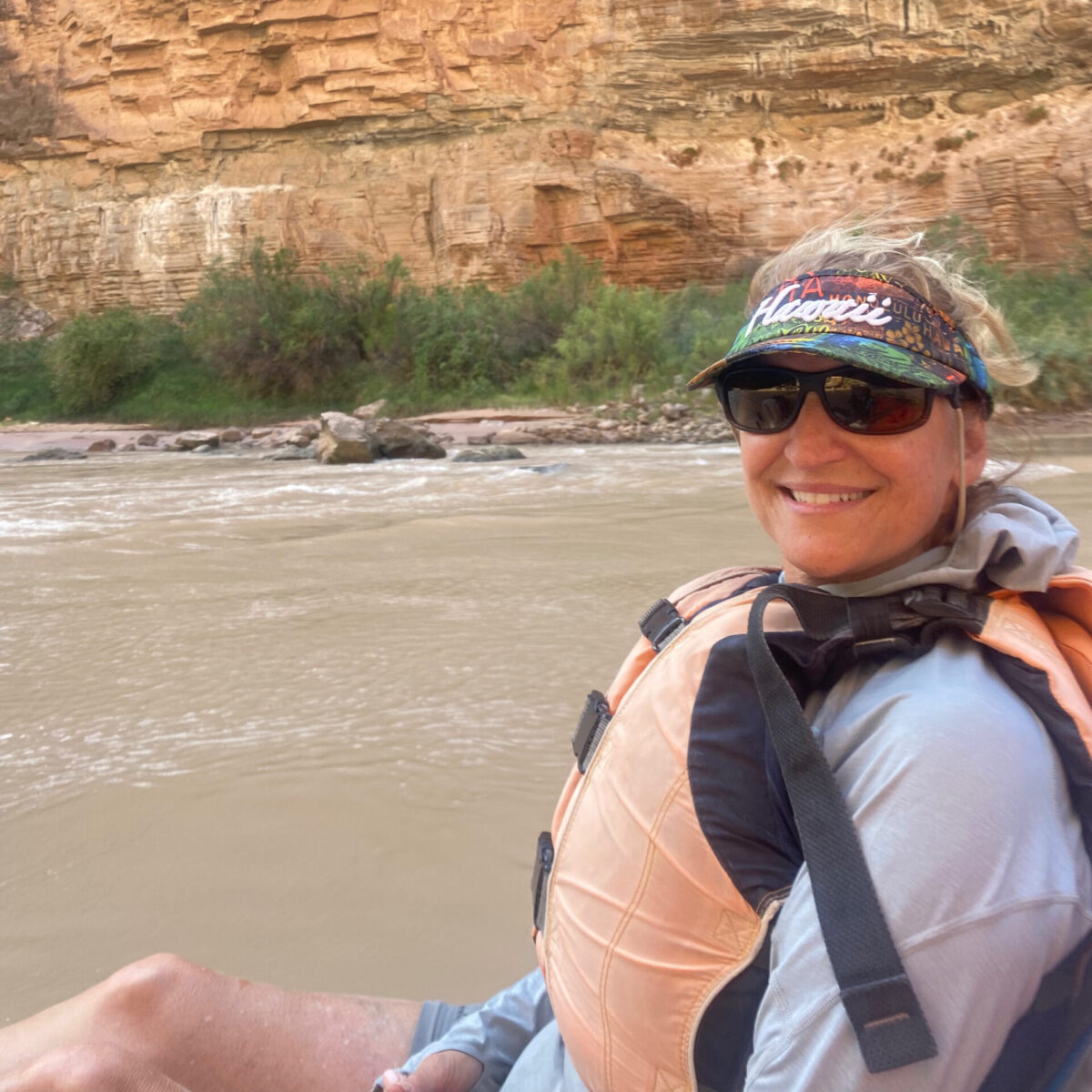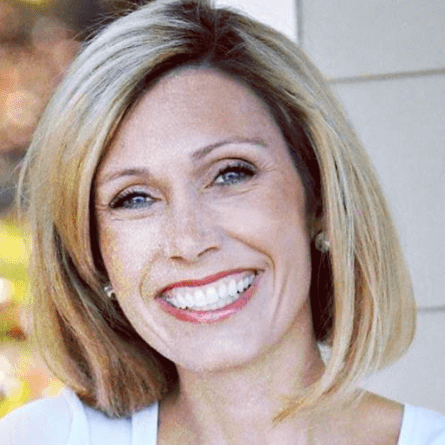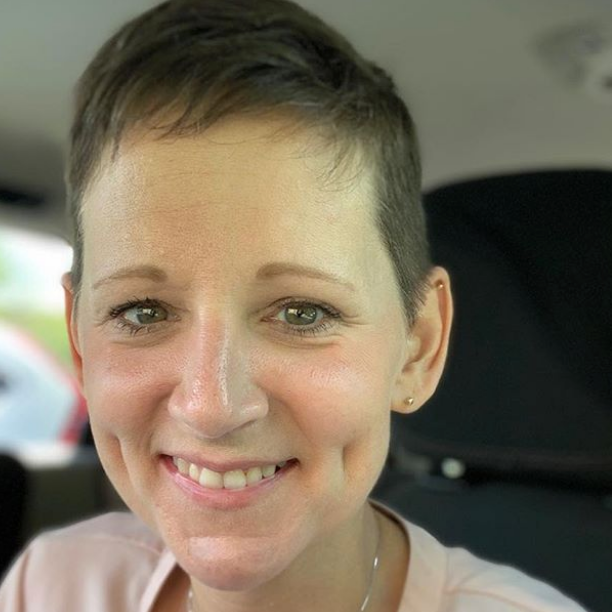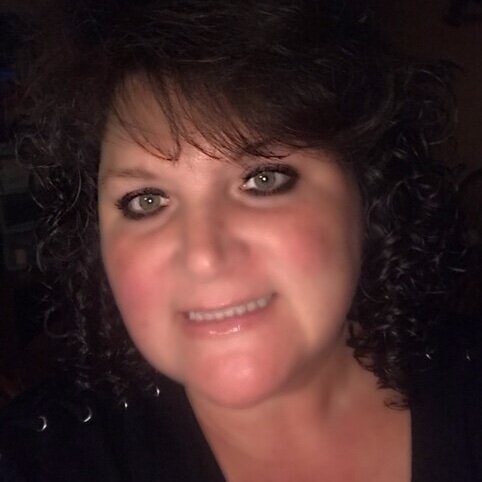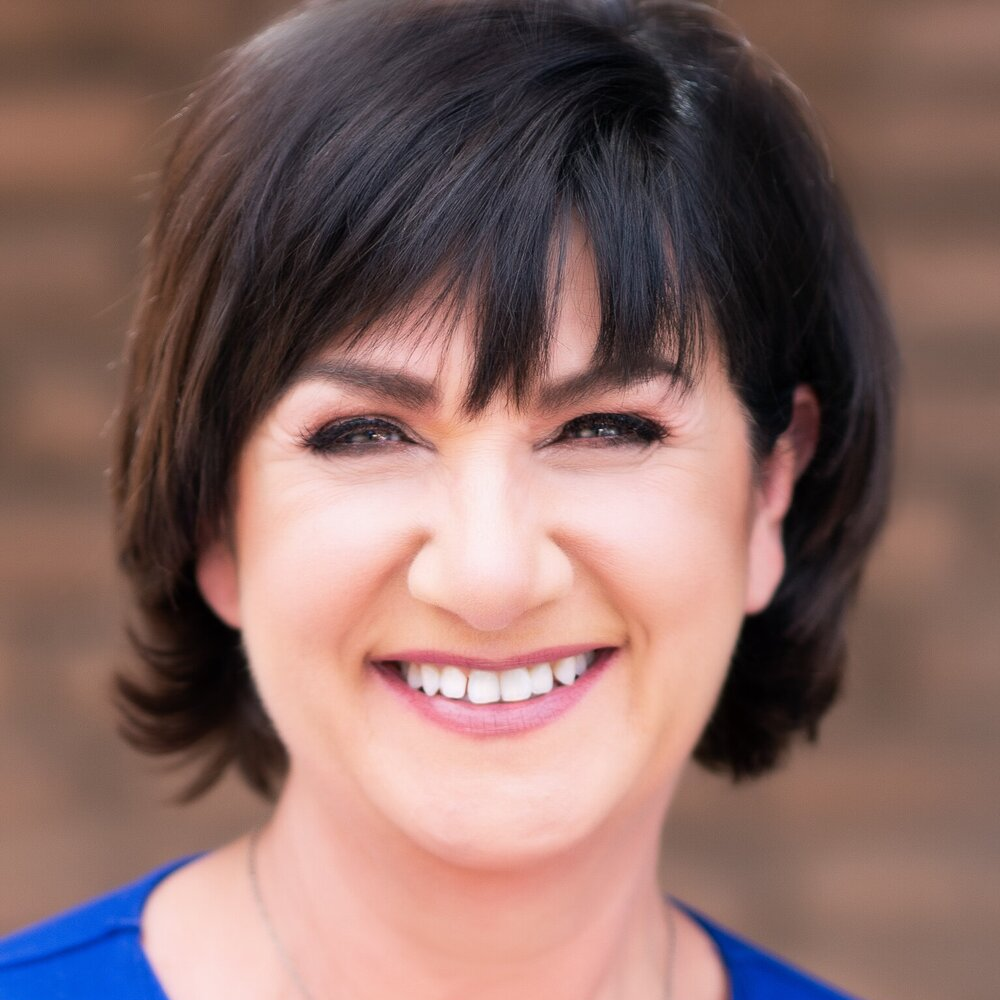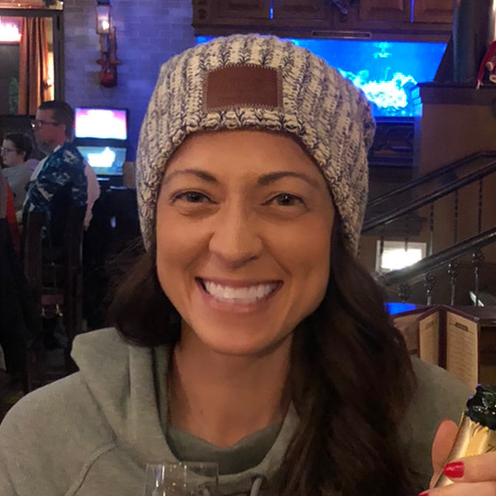Marie’s Stage 4B Metastatic High-Grade Serous Ovarian Cancer Story
As a healthcare communications professional, Marie sat down with numerous cancer patients and shared their stories through writing. She was familiar with cancer symptoms and knew to take them seriously. Then her own cancer symptoms began, such as bleeding and spotting, which led her to make an appointment with her doctor and get an endometrial biopsy and ultrasound. Doctors didn’t find anything in either test.
Later that year, new symptoms arose including fatigue, belly button discharge and a major fall which led her back to the doctor. New tests revealed that Marie had metastatic cancer and another biopsy uncovered a stage 4B ovarian cancer diagnosis. She quickly began chemotherapy and would soon after receive a major surgery.
Today, Marie shares her cancer story with us, including her experience with chemotherapy side effects, the importance of advocating for yourself, why she chooses to have a positive outlook, her encouragement for people to get genetic testing, and her advice for others on their cancer journeys.
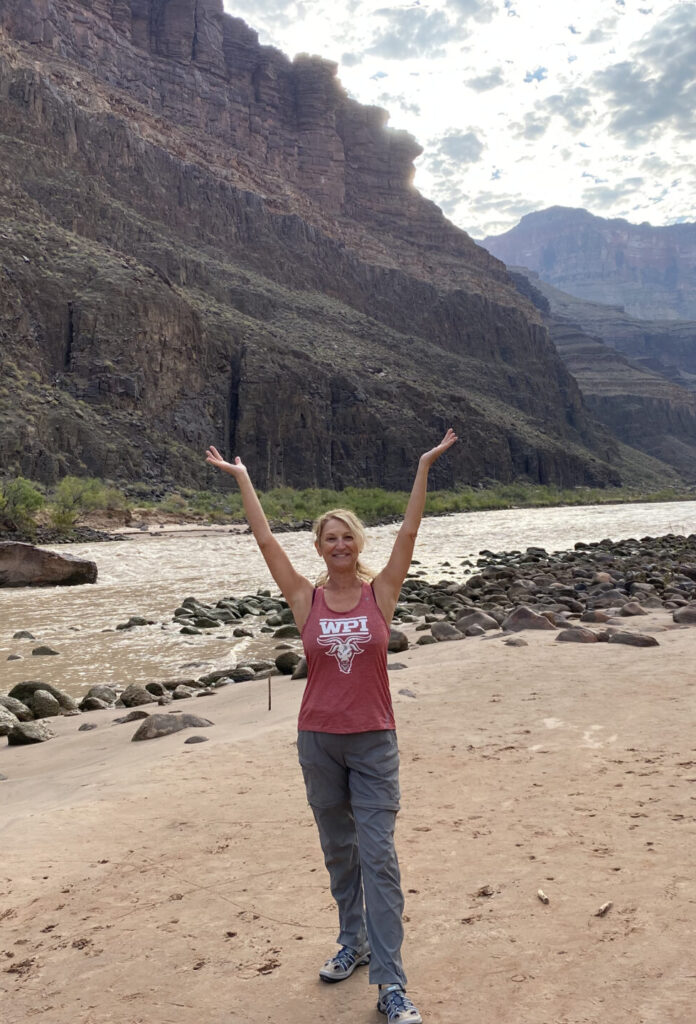
- Name: Marie K.
- Diagnosis (DX):
- Ovarian Cancer
- High-grade serous
- Metastatic
- Ovarian Cancer
- Staging
- 4B
- Symptoms
- Bleeding and spotting
- Extreme fatigue
- Oozing belly button
- Swollen gland near the groin
- Age at DX: Early 60s
- Treatment:
- Chemotherapy
- Carboplatin and paclitaxel
- 3 infusions every 3 weeks
- Carboplatin and paclitaxel
- PARP inhibitor
- Surgery
- Chemotherapy
I believe in making lemonade out of lemons. One of my goals now is to, for the rest of my life, advocate and make sure that any opportunities to do genetic testing or screening early to prevent cancer become mainstream.
Marie K.
This interview has been edited for clarity and length. This is not medical advice. Please consult with your healthcare provider for treatment decisions.
Symptoms
Tell us about yourself
My name is Marie and I live in Sacramento, California, which is the state capital of California. I’ve been in California for decades, but have only lived up here for a short while. My family’s here, so that’s why I’m here.
I’m a mom. I have wonderful adult children, and their lives fulfill me and keep me on the move. They’re all in amazing, wonderful careers. Not everybody lives nearby, so it’s a little hard to stay in touch.
I have been in healthcare communications for decades, so it was very interesting after all those years to be the patient after telling so many patient stories for so long.
I keep myself busy. I love the outdoors and the beach, and I do a lot of downhill skiing. I have a black lab. He’s not a puppy anymore, but we still call him a puppy, and he keeps me pretty entertained. I like to travel and read. I serve on a number of nonprofit boards and do some nonprofit work, which is really important to me. I keep really busy.
What were your first symptoms?
In early 2020 during the pandemic, one of my clients was an NCI-designated cancer center here in the Sacramento area. I was producing their synthesis magazine, which comes out twice a year. I wrote stories about people with cancer. I happened to be doing a special issue around colorectal cancer.
I knew a lot about symptoms for anything that wasn’t okay, and I started getting my own symptoms. I started having spotting and bleeding, which is not okay for a woman of my age. I was like, “Well, I know that’s not a good thing.”
I reached out to my primary care physician in 2020. She did an endometrial biopsy. First, she did an ultrasound and didn’t find anything specific at that time. In January 2021, she did an endometrial biopsy and still didn’t find anything. I was told that if I continued to have those symptoms, the spotting would be normal because of the biopsy I had. Then I got super busy.
I look back and I see that I had other symptoms that are symptoms of the cancer I was ultimately diagnosed with, but they’re not obvious symptoms.
Secondary symptoms
Fast forward to the Fall of 2021. I went on a river rafting trip. We did a 9-day trip down the Colorado River. We’re a mile down in the canyon for 9 days with no reception. The river’s muddy. When you look at the brochures or the website, the river’s always blue, but it was muddy. The river loves to be muddy. It wasn’t good for the rest of us, but basically, we were bathing and washing our hair in muddy water.
Because there was a heat warning down there, it was 115 degrees, we spent a lot of time in the water. You wanted to be wet all the time. Fast forward, I get back from that trip and I’m pretty tired. I’m pretty worn out, and I just assume that was from every night, you set up camp and every morning you pack it up and head back down the river. I assumed I was tired from sleeping on the sand for 9 days. But I was still tired, so I said to my son, “If I’m still tired next weekend, I’m going to go see a doctor because I’m really tired.”
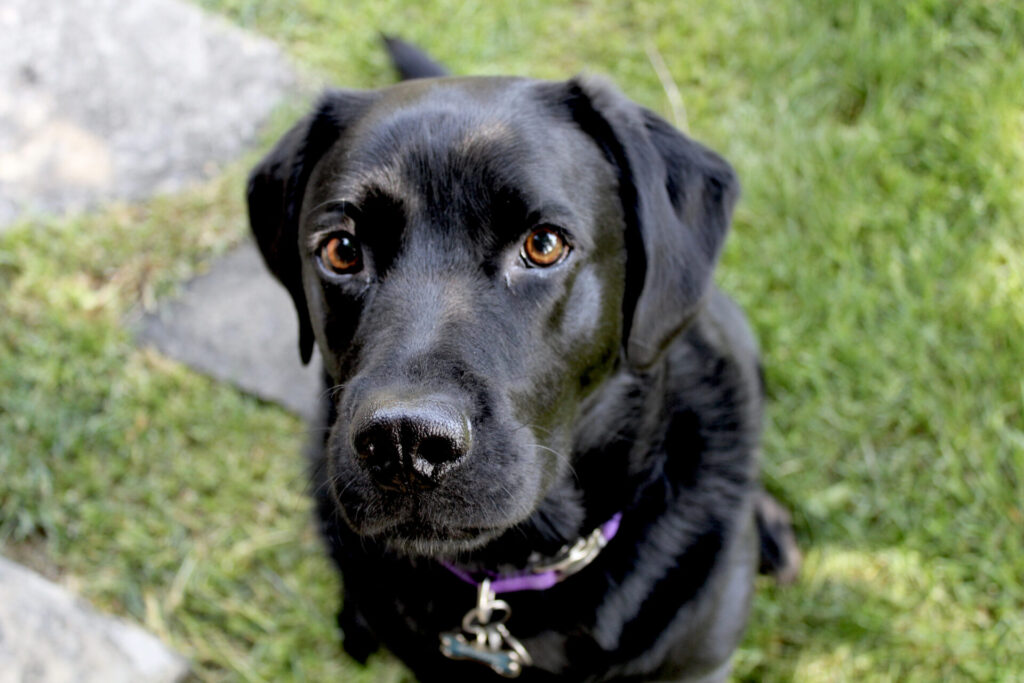
Meanwhile, my black lab was a puppy at the time. He’s from a line of hunting dogs. He’s always sniffing everything, he’s always sniffing me. If you come home from anywhere, he checks you out. But he kept burying his nose in my belly and I’m like, “What is he doing?” I hadn’t been showering a lot. It’s the pandemic and I didn’t feel well. I finally lift up my shirt. I’m like, “Do I have food on me or something?” This is probably TMI, but I discovered that my belly button was oozing, which is pretty gross. I immediately Googled it. I’m like, “Well, I better see a doctor.”
Scheduling a doctor’s appointment
I was super fortunate. This is now the end of September 2021. I get in to see a doctor and it’s during the pandemic. Believe it or not, I found an opening and told the doctor that I’d been on the river, so I thought maybe I had an infection. The doctor prescribed me an antibiotic but said if nothing changed in 48 hours, please come back.
Nothing changes in 48 hours and then I find what feels like a swollen gland in my groin, coincidentally. I have a follow-up appointment for the following Tuesday. Now we’re getting into the first week of October.
That Monday, I was walking my dog again, and I was like, “I just don’t feel good. I really shouldn’t be out walking him,” because he’s a lively, strong puppy. Before I knew it, I hit the ground. I don’t know what happened if I tripped on him, but I hit the ground so hard that it knocked the wind out of me. I went face-plant on the cement. Fortunately, a neighbor saw he came running out. He helped me. I eventually made my way back home. I wasn’t that far from home and I had my doctor’s appointment the next day, so I’m like, perfect.
My wrist hurts, my lungs, I just hurt really bad. I’m in a lot of pain. I see the doctor and since nothing’s changed, she orders an ultrasound of my pelvic and stomach area. Because I had so much pain in my chest, she ordered an x-ray of my chest also. I get in right away to do that. That was on a Tuesday.
Diagnosis
Receiving a cancer diagnosis
On Thursday, the classic cliche, I’m driving along, I get a call from the doctor and she asks if I’m close to home or if I can pull over. I pull over and she says, “I hate to tell you this on the phone, but you have metastatic cancer. It’s in your ovaries, your lungs, your omentum,” which is your extra stomach. I’m in so much pain, all I say is, “Yeah, but did I break my chest or something?” She said, “No, we don’t see any breaks in your chest or anything.”
All I cared about, this is terrible, is just the pain I was in. That’s the first week of October. She gets me in right away to see this wonderful gynecological oncologic surgeon at my hospital system. I go see her and she’s like, “Everybody likes to assume that things are ovarian right away, but we need to find out the origin of the cancer first because it affects how we treat you. I’m also concerned about all the falls you’ve taken and the fact that your cancer has metastasized. I’d like you to do a skeletal scan and a brain scan and make sure you don’t have Mets in your brain and your bones.” I do that and the good news is there was no Mets in my brain or my bones.
»MORE: Reacting to a Cancer Diagnosis
But the tech said to my doctor, “Does she know that she has 4 fractured ribs on her left side, 6 fractured ribs on her right side, and a fractured sternum?” I had taken a fall before my river trip walking my puppy and I went on the trip anyway because it’s really expensive to cancel. I didn’t get to paddle a lot on the trip, so those ribs were a little further along in healing, but that was all I cared about.
I think most people would probably be reeling from a metastatic cancer diagnosis, but I was just in so much pain. Finally, I got some stronger meds and walked around and laid around with a pillow for a couple of weeks and healed. I had time to lay there and start processing the fact that I had this cancer diagnosis.
What was your official diagnosis?
I had to wait 3 weeks because it was the pandemic. It took me that long to get in to do a biopsy to confirm the origin of the cancer. The biopsy was at the end of October. By the end of October, it was confirmed that it was metastatic ovarian cancer stage 4B, which is pretty much the worst diagnosis that you can get.
Processing a cancer diagnosis
I have the advantage that, for decades I’ve been writing stories about and meeting cancer patients. I knew a lot about healthcare and the healthcare system. I knew a lot about the drugs that are out there for cancer and how we treat cancer. I also knew that when you read those prognosis factors on websites, they’re based on some data and everybody’s cancer journey is different.
From an intellectual perspective, I was like, “Okay, I can do this. I’ve watched all these other amazing people and told their stories. I can do this.” I knew there were great drugs out there and great doctors. Intellectually I was like, “I’m going to get through this.” Emotionally, I wouldn’t let myself go there too often, but I did have some crying sessions, mostly because I was not ready to leave my adult children. It broke my heart to think about that.
It was confirmed that it was metastatic ovarian cancer stage 4B, which is pretty much the worst diagnosis that you can get.
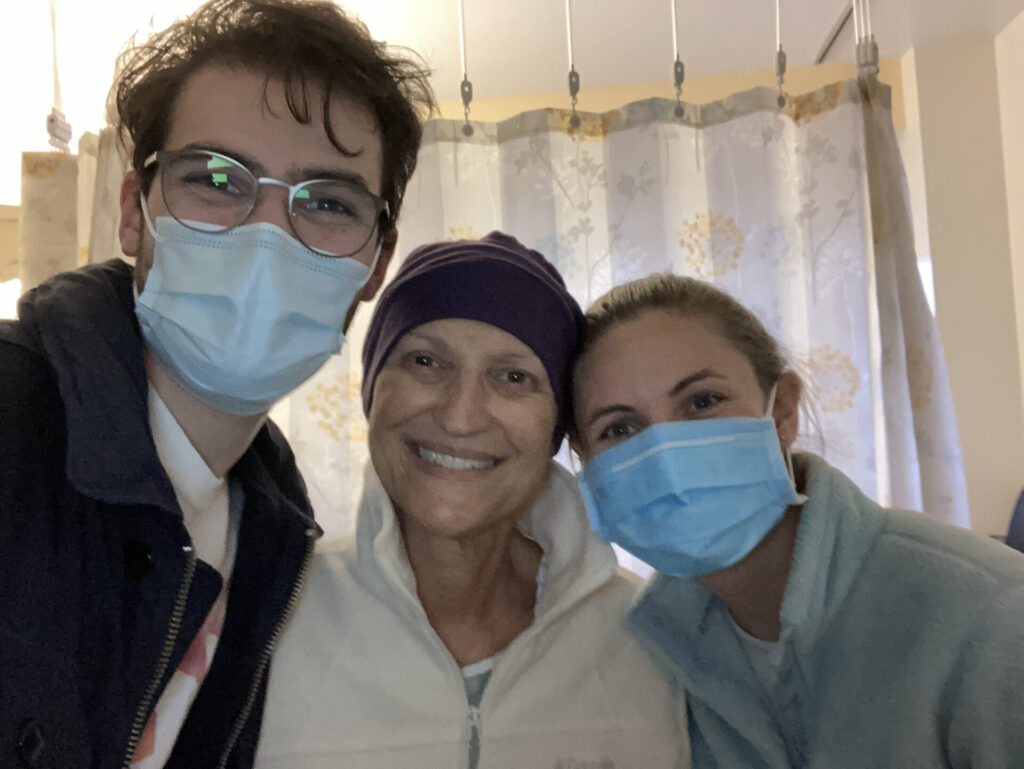
I was the one who wrote the stories about, “I was able to be there for one more wedding or one more grandchild.” I still tear up. I cannot talk about that part without tearing up. That was the emotional part, was the fact that I wouldn’t be able to see my kids continue to become the beautiful people that they are. That was hard.
Then, of course, we were on the phone every day trying to navigate how I was going to put together my care. Because again, it was 2021, but the pandemic was still very much affecting the healthcare system, access to doctors, access to the OR, and all of those things. I was in the middle of an insurance change, believe it or not. I had a lot going on to keep me busy.
Chemotherapy
Starting chemotherapy
This wonderful doctor, this oncologist that I went in to see, helped me expedite everything. She wanted me to get into the chair as soon as possible. They fast-forwarded my training. You do a chemo training. I got my own personal chemo training. I was in the chair by November 6th. Because the cancer center had been my client, I was working on getting into the cancer center, but I went where I could get in the quickest.
I have a really good friend from where I used to live. He’s an oncological surgeon. I was so sad that I was waiting so long for the biopsy and then I was nervous about having a pretty big surgery in between my infusions. He just said, “Well, first of all, don’t panic that the cancer is in there. It doesn’t change that much. Don’t let the time stress you out.” But I was in the chair pretty quickly. He also did a bunch of his own research, which was in agreement with the doctor’s recommendation. Three infusions every 3 weeks of carboplatin and paclitaxel, which is the standard of care. It’s in the NCCN guidelines for ovarian cancer.
»MORE: Chemotherapy FAQs & Patient Stories
How did your surgery go?
Then I had my major surgery within a few weeks of that third infusion, and then 3 more infusions, which took me into April of the next year. I had my big surgery in January. I ended up getting my surgery at the cancer center because two things happened. One is this wonderful oncologist left and I was so sad. I had also been doing a lot of research and found out that Dr. Brooks at the cancer center was renowned in terms of ovarian cancer. Instead of trying to find a surgeon within the hospital system I was at, I chose to have my surgery at the cancer center.
The surgery was good news. It was a high-grade serous ovarian cancer, which means it responds really well to chemo. When they did the surgery, what’s usually a 7 or 8-hour surgery, was only 3 hours. It had not metastasized to my other organs. It had worked so well that they weren’t even able to get enough of my tumor to type the tumor in pathology. Since I had such a good response, I did say, “Does that mean I don’t have to do 3 more infusions?” They’re like, “No, it doesn’t work that way.”
Did you have any side effects from chemotherapy?
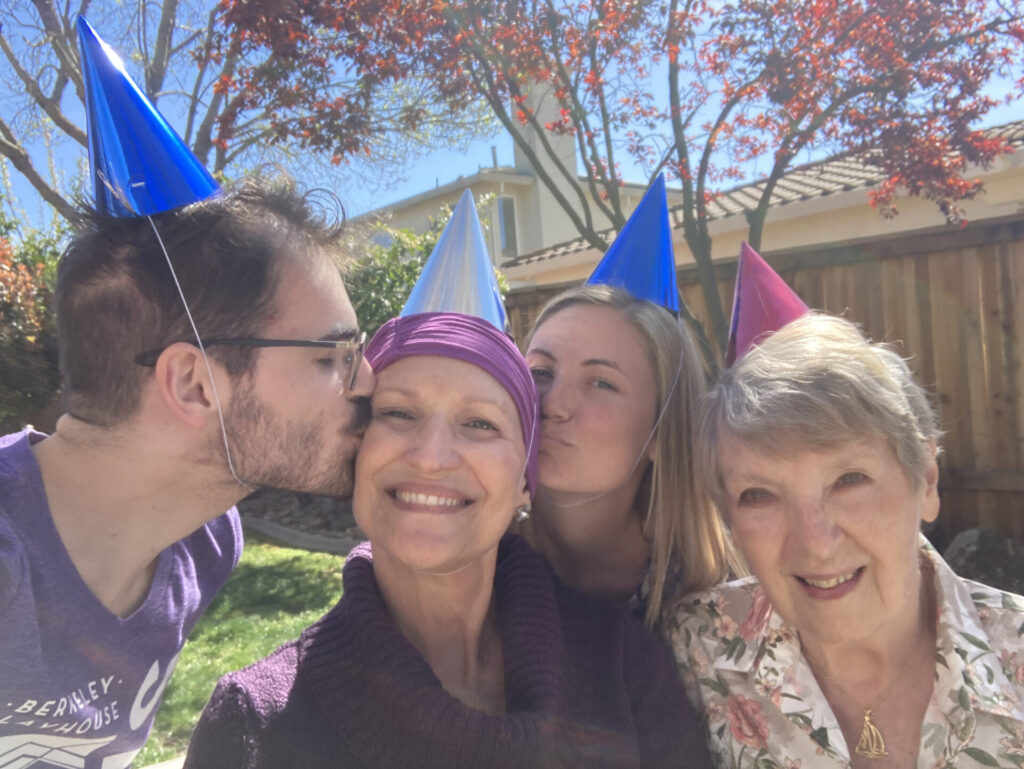
That’s probably one of the hardest visually dramatic parts of chemo care is losing your hair.
The truth of the matter is the infusions get harder because the side effects get harder. My fifth infusion was delayed by a week because my white blood cell count had dropped too much. I had the symptoms that you hear about. I lost all my hair. In 2022, I was completely bald. I did eventually shave my head so I didn’t have to deal with that. I think that’s probably one of the hardest visually dramatic parts of chemo care is losing your hair. It was really tough.
What are some tips you have for someone on chemotherapy?
It’s something I really think about a lot and I’m doing some advocacy work around this topic. For these drugs to work well, you have to have the right 360 care. You have to be able to eat right, sleep, be safe, rest, and a lot of other things so that you can survive the treatment.
I was fortunate that I had this amazing village. Everybody showed up. Even my kids were like, “Who are all these people?” It was a beautiful thing. I cried every day because of all the acts of kindness. I’m not kidding. Beautiful blankets that people made me would show up, wonderful food, and the most gorgeous flower arrangements and cards. Every day, there was something. I was so touched.
The 360 care was so important to managing the side effects. You’ve got to be able to eat. They’ve come a long way in giving chemo. Decades ago, I launched a monoclonal antibody for breast cancer. It was one of the first, and that was in the late 90s. Chemo was really hard on women. They’ve come a long way.
For these drugs to work well, you have to have the right 360 care. You have to be able to eat right, sleep, be safe, rest, and a lot of other things so that you can survive the treatment.
The week you get your infusion, you’re given steroids, antihistamines, anti-nausea, and all kinds of prophylactic care. You stay on those meds that first week until you get through the worst part of the chemo. I always knew that chemo week would be a really bad week. Well, the first few days would be great. You were high on the steroids, so I couldn’t sleep. People clean their houses, do projects, and then you crash and burn. Your second week is really hard, in your third week you’re feeling good, and then you start all over again.
Was there anything that helped mitigate your side effects?
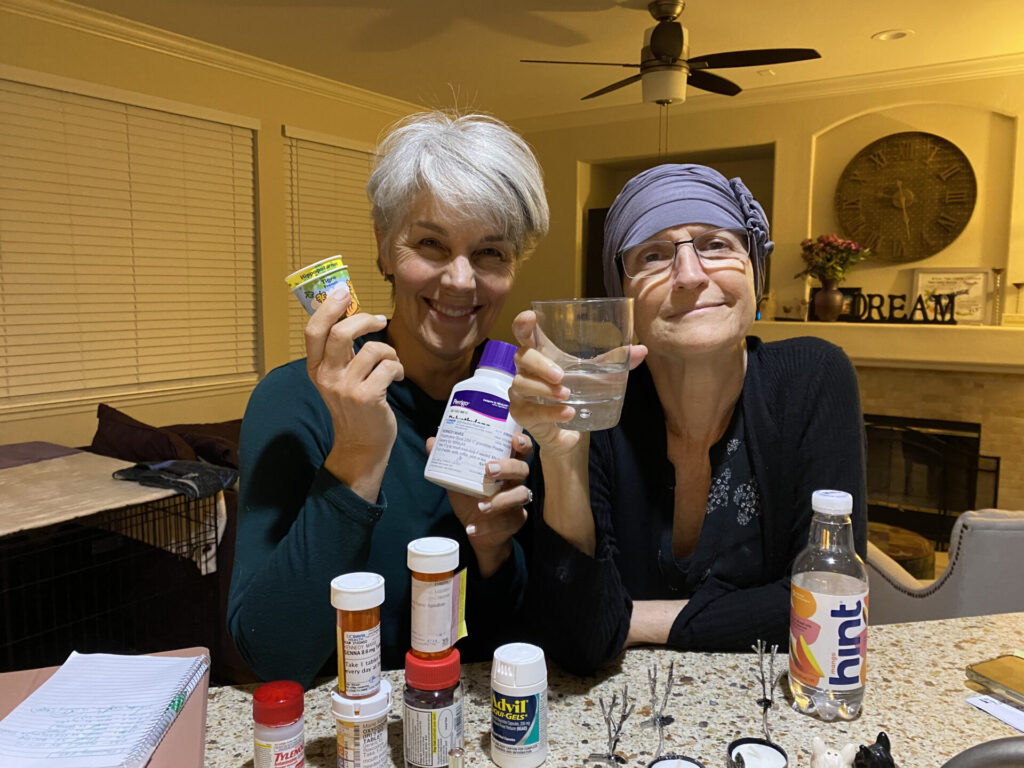
It was really critical to eat right and to follow the regimen that they’d set forward. Lots of sleep, which was weird for me because I was never a napper. I’ve never been the kind of person that can lie down and sleep. But this fatigue is not the same as being tired. It’s a very physical type of tiredness where you have no choice. You can feel the energy drain out of your body from your head to your toes and you have to lie down.
I did a lot of resting and sleeping, which was not very normal for me. I watched more TV during that time than I watched in my lifetime. I read a lot too. I had friends send me great books, their favorite books. I read some autobiographies about people who had cancer. I continue to do nonprofit work, so I try to have some structure in my life.
»MORE: Cancer Treatment Side Effects
Quality of Life
What cancer treatment are you on today?
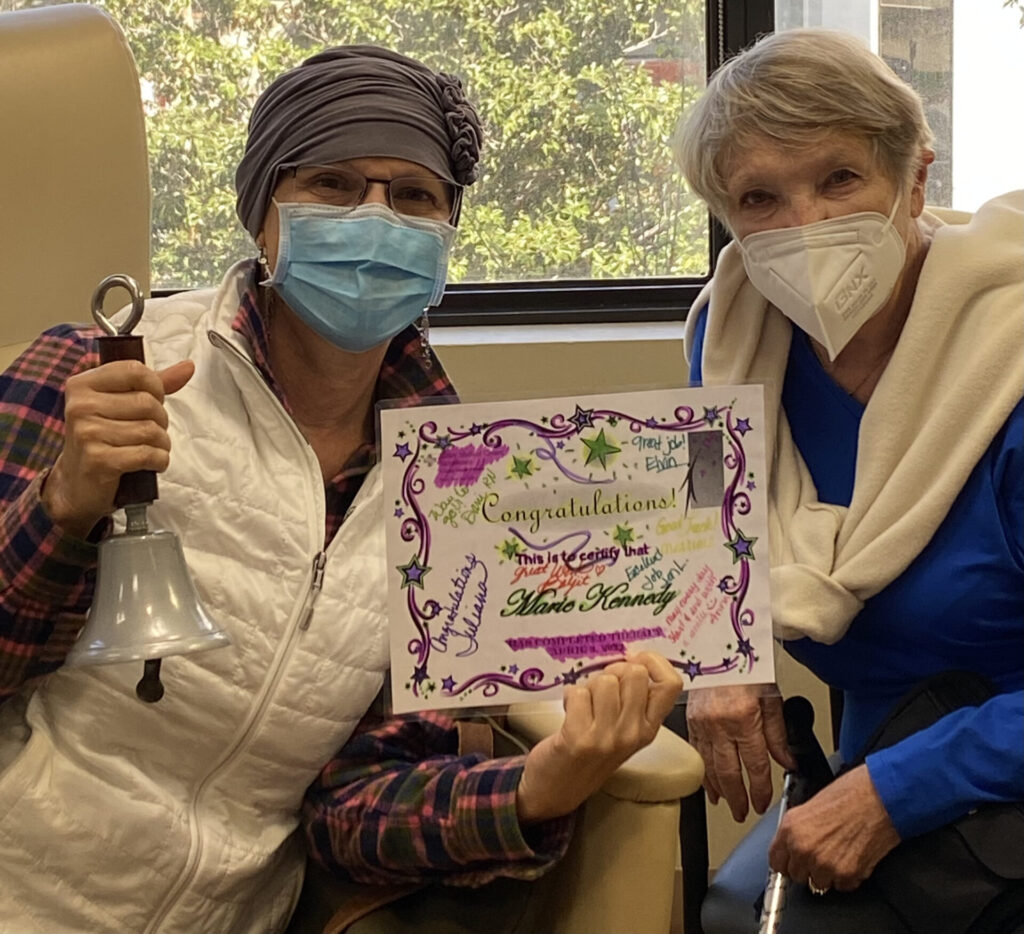
Today, I’m on an oral chemo. It’s a PARP inhibitor and it targets the BRCA2 mutation. I’ll be on it for 2 years, so I’ve got about 10 months left, or maybe 9 months. It has side effects, but I’ve gotten used to most of the side effects. There are things I have to do every day and I have to take care of myself, which is hard. I can’t do a lot of things that I used to do.
The good news is, when I’m finished with my 2 years, they take you off because they believe that the side effects start to outweigh the benefits if you’re on it for too long. But they believe that it keeps working. They believe, with ovarian cancer, that they can talk about remission, which they weren’t able to do before. My next big milestone is June 24th, and it will be really exciting to not be on any medication anymore. It’s been a long time.
How often do you receive scans and tests?
My oncologist is really nice about that. She leaves it up to me. Every time you get a scan, you expose your body to radiation so we don’t do a lot of scanning. We did scanning in the beginning. The first year you scan – I’m forgetting – I think you scan quarterly. Then we went down and then we stopped.
Every quarter, I do my lab tests and there’s a test called a CA-125, which is a measurement. It’s not a predictor, but a measurement if you have ovarian cancer. I think it measures other cancers too. Your CA-125 tells you if the cancer is returning. When I was diagnosed, my CA-125 was 477 and it’s supposed to be under 35. Today, it stays under 35. It’s quite low, but since it was a predictor for me, they used that. We keep an eye on that quarterly.
If I’m feeling nervous about things, which I do. Every little bump now, I’m like, “Oh, it’s back.” The thing about the scans is it has to be far along for the scans to pick it up. The lab tests are actually better in trying to pick up the cancer before it becomes big enough that it can be picked up by a scan.
Did you stop working?
I left my work right around getting diagnosed, and I don’t know how people continue to work. I don’t know if that’s a good idea. Some people don’t have a choice, but I don’t know how people work while they’re getting chemo. They’d have to have a really understanding employer.
Genetic Testing
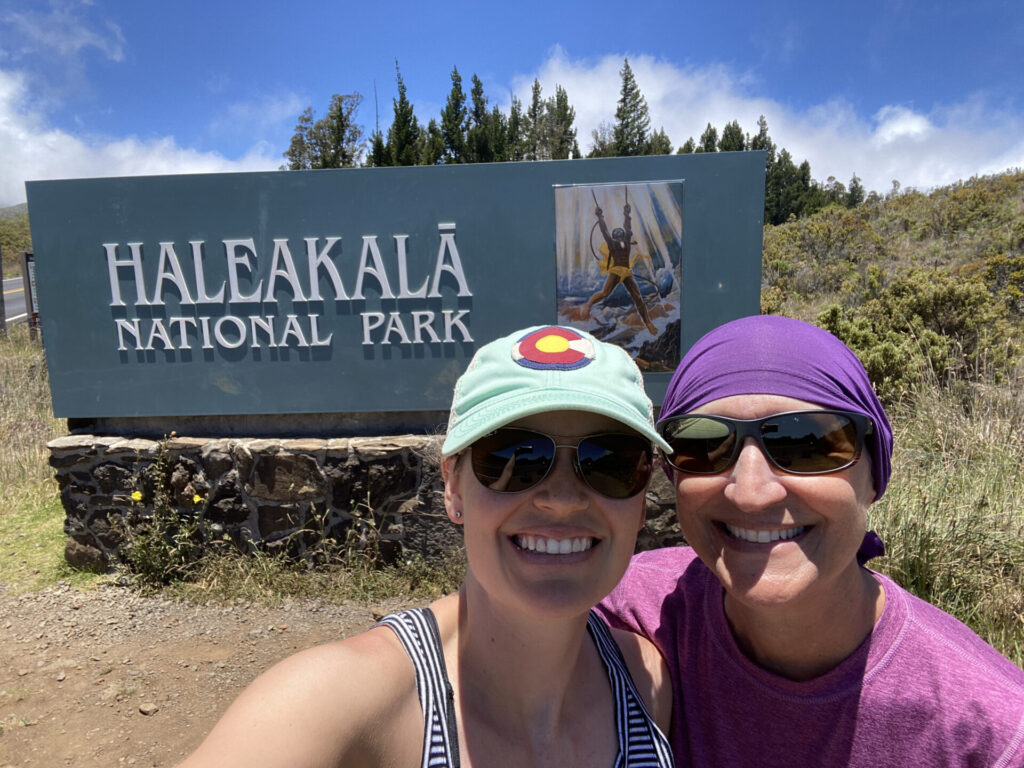
Did you get genetic testing?
In the middle of that, I did find out that I am BRCA2 positive. They put off the genetic testing until you’re through care. I said, “No, I want to know now.” I was quite angry about that because I was like, this is crazy that I had to wait until I’m in my early 60s to find out that I’m BRCA2 positive. We could have figured out a long time ago if I was positive that it was likely ovarian cancer because BRCA2 is an indicator for ovarian, melanoma, prostate, colon, breast, and they think pancreatic cancer.
Advocating for preventative care
I believe in making lemonade out of lemons. One of my goals now is to, for the rest of my life, advocate and make sure that any opportunities to do genetic testing or screening early to prevent cancer become mainstream. We sequenced the human genome decades ago and there are now lots of genetic tests out there. They just haven’t made it mainstream.
If you check guidelines for preventive care for women’s health, you don’t see on there, get genetic testing. If you go to the NCCN guidelines, it’s not there. Men don’t get told to go do their genetic testing to find out if they’re susceptible to prostate cancer. It doesn’t happen.
What I would tell people is that your healthcare provider within that system has somebody who is a geneticist, and it’s their job to do the genetic testing. There’s a lot of genetic testing that’s done for other types of care. One of the reasons it’s not mainstream is because, when you find out you have something, how do you take care of it? Sometimes you find out you have something and there is no care for it. But there are so many other types of diseases that you can find out about through genetic testing that outweigh the others.
Are there options for genetic testing outside of getting it through a healthcare provider?
I have a lot of friends and family now who are all getting their genetic testing done, and it’s really not that expensive. If for some reason your healthcare provider won’t pay for it, it’s only $250, in general. It’s a spit test so they mail the whole kit to your house. You don’t even have to go anywhere. You do it at your house and you mail it back.
Are there benefits to seeing a geneticist?
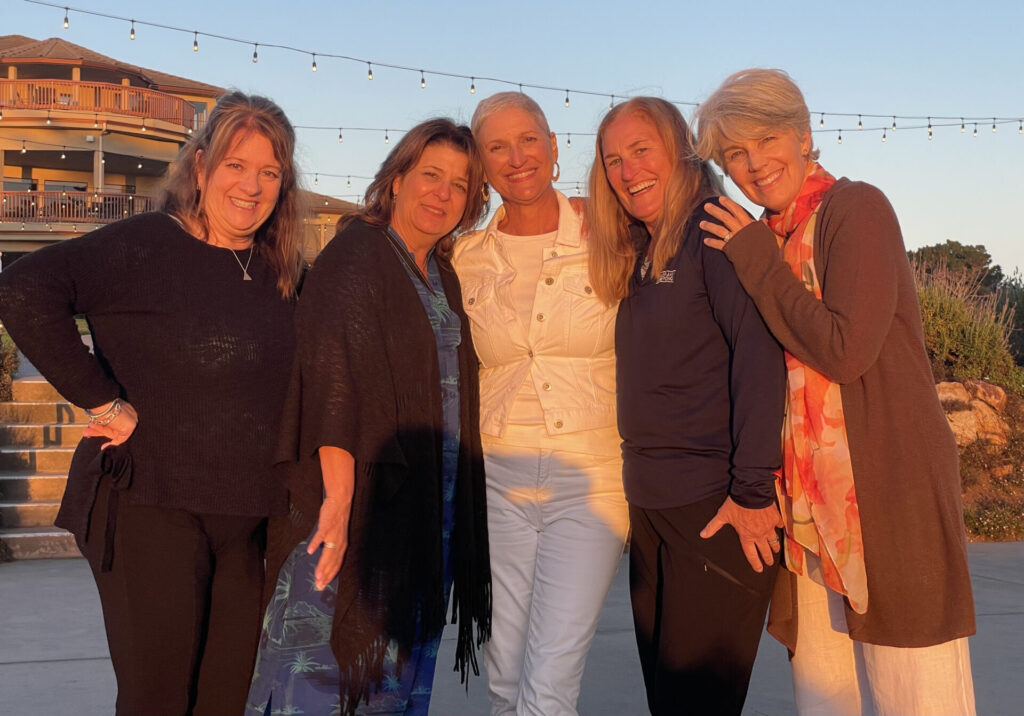
Be proactive and ask to get your genetic testing.
It really is wonderful to do it with a geneticist because then they walk you through the report you get back. I have a very detailed report, and they even wrote a family letter for me to send out to my family. With something like a BRCA mutation, people only usually associate that with breast cancer, but it’s an indicator of prostate cancer.
The irony is that both my mother and my brother had cancer, and their healthcare system never had them do genetic testing. If they would have done that, we could have known then that we had this mutation in our family.
I really recommend that people start asking questions. It really fills my heart when I have friends let me know that they’ve done their genetic testing. One of my dear friends who was part of my village, her family uncovered the BRCA2 mutation. Her sister has since been diagnosed with ovarian cancer, so her daughters are all over it now. I really encourage women and men to be proactive. Not just women, but men too. Be proactive and ask to get your genetic testing.
Reflections
What advice do you have for someone on their own cancer journey?
First and foremost, you have to be your own advocate. I know people talk about that all the time, but you really need to get engaged in your healthcare. It’s unfortunate if you haven’t done that already. Now you’re facing this diagnosis and now you need to.
This is the time you need to accept help from the people around you. I really recommend when you’re seeing your doctors, always bring somebody with you or if it’s on the phone, have somebody there because it’s so much to take in and it’s really helpful if somebody else is taking notes. I never went to an appointment without somebody else there. We would compare notes and then I would forget something but my friend or daughter or whoever would remember what the doctor had said.
The importance of asking questions
Don’t just accept what you’ve been told if you don’t understand it. It’s okay if you don’t understand what the doctor is telling you. This is complicated stuff. Our doctors, this is what they do every day so they understand it. Sometimes they forget to slow down for you. As somebody whose job it was to translate science and healthcare so the layperson could understand it, it was still hard for me to understand. Don’t be afraid to ask questions.
If you’re not comfortable with your healthcare provider and you feel like you need somebody who’s going to listen to you more, it’s okay to seek that care out and know how you’re being treated. Know what the options are. I have run into people who didn’t even know what they were being treated with, and I think you should know what you’re being treated with, what your options are, what are the side effects, and what are the long-term impacts. It’s okay to ask all those questions. I would say, take the time and get engaged. This is life and death stuff. You want to get engaged and you want to know what’s going on so that you can navigate through to the other side.

Having a positive outlook
I’ll have people say to me, well, you had such a positive attitude. That’s why you did so well because you had such a positive attitude. With some exceptions, I think there’s truth to that. Every cancer is different – when and where you get diagnosed, the health of your own body, and the resources you have at your disposal, all impact your recovery.
Don’t let people tell you all those negative stories. Don’t read the general data about diagnosis and prognosis because it’s general data. Write your own story and try to stay positive. Let your friends and family help you. People want to help you, and you need to let them, and they will be part of your hope because everybody is rooting for you.
I do believe that depending on your cancer, the cancer doctors know a lot, they know how to treat you, and they’re going to do their best to help you. That combined with hope and love can sustain you. There is an end. You’ll hear stories – lots of people have second and third cancers, which is hard. But you’re going to get through this first one. So every day, look around you and be thankful for something that day.
Adjusting to life with cancer
When you get your cancer diagnosis, as much energy as you put into finding the doctor and figuring out your medical care, put just as much energy into, what is your life going to look like for the next year? What is that support system going to look like? Who’s going to be around to help me go to appointments, make sure I’m being fed, and make sure there’s groceries in the house? Think about your activities of daily living and how you’re going to get through those. I think it will have a lot of impact on you having a healthy, positive outcome.
Thank you for sharing your story, Marie!
One of my goals now is to, for the rest of my life, advocate and make sure that any opportunities to do genetic testing or screening early to prevent cancer become mainstream.
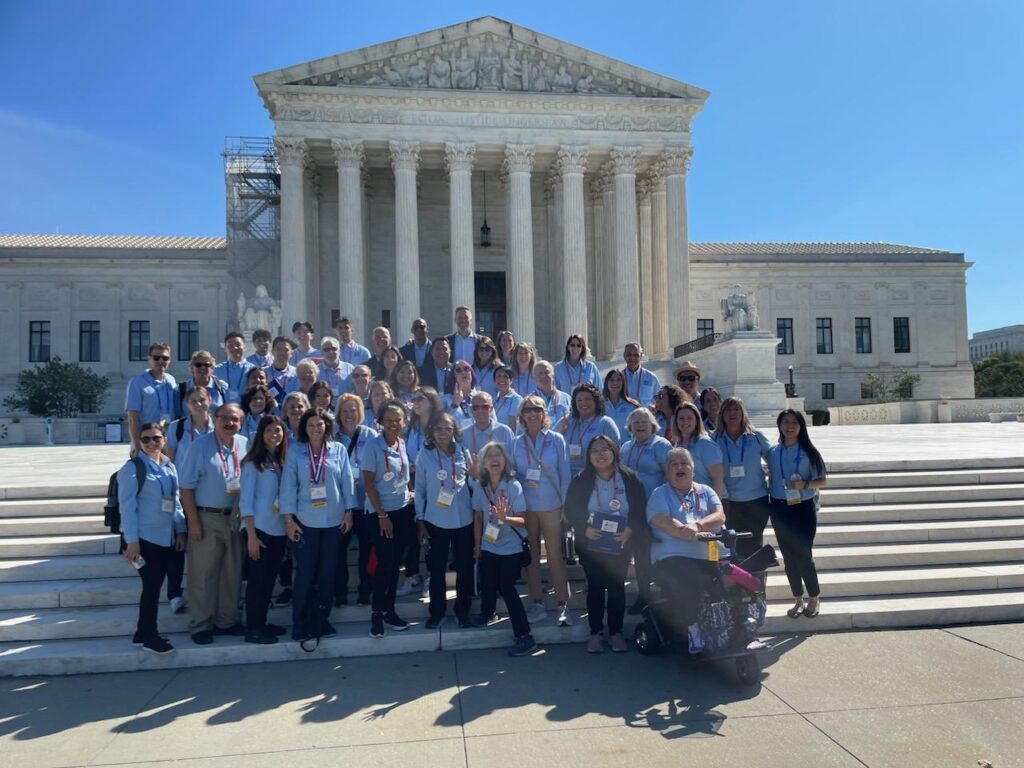
It’s part of my making lemonade out of lemons. I want to share my story, I want to work on making sure that genetic testing is accessible, and I want to make sure that we help people who have less resources figure out how to navigate and have a positive outcome. Backing up to that is prevention. Getting more of these cancers diagnosed early, and that’s the work I do through my advocacy work through the Cancer Action Network.
More Ovarian Cancer Stories
Randalynn V., High-Grade, Stage 1C
Cancer details:Account for up to 70% of cases
1st Symptoms:Pulling sensation when emptying bladder; abdominal pain
Treatment:Chemotherapy (Carboplatin & Paclitaxel) & surgery
...
Shirley P., High-Grade Serous Carcinoma, Stage 3C, BRCA1+
Cancer details:Account for up to 70% of cases
1st Symptoms:Pulling sensation when emptying bladder; abdominal pain
Treatment: Chemotherapy (Carboplatin & Taxol), de-bulking surgery & PARP inhibitors
...
Suzann B., High-Grade Serous Carcinoma, Stage 3C, BRCA1+
Cancer details:Account for up to 70% of cases
1st Symptoms:Inability to urinate
Treatment: Chemotherapy, de-bulking surgery & total hysterectomy
...
Susan R., High-Grade, Metastatic
Cancer details:Account for up to 70% of cases
1st Symptoms:Pulling sensation when emptying bladder; abdominal pain
Treatment: Chemotherapy (Carboplatin & Paclitaxel) & surgery
...
Sara I., Clear-Cell, Stage 3A
Cancer details: Account for ~ 5-10% of ovarian cancer cases
1st Symptoms: Random sharp pains, unrelated scan showed ovarian cyst
Treatment: Debulking surgery, chemotherapy (carboplatin & paclitaxel/Taxol), clinical trial of PARP inhibitors
...
